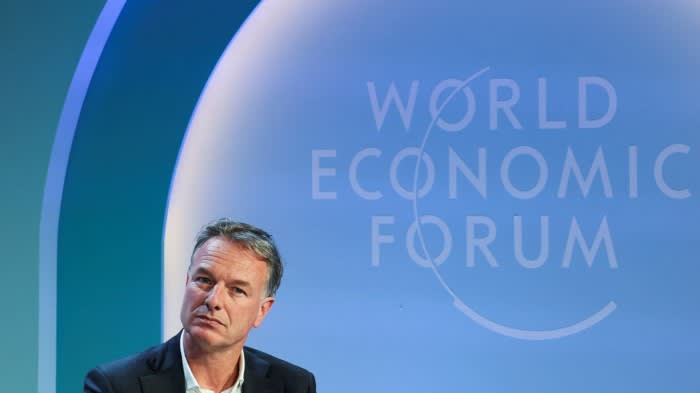
Stay informed with free updates
Simply sign up to the Climate change myFT Digest — delivered directly to your inbox.
ING, the Netherlands’ biggest bank, is facing the threat of legal action over its financing of fossil fuel companies and its “contribution” to climate change by the campaign group that won a landmark case against Shell in a Dutch court.
In what could become a test case for the banking industry, Friends of the Earth Netherlands sent a legal liability notice to ING boss Steven van Rijswijk on Friday, claiming the bank had breached its legal obligations “by contributing to dangerous climate change”.
Banks globally have come under increasing scrutiny over their role in financing fossil fuel companies. The burning of fossil fuels is by far the biggest contributor to climate change.
The claim against ING argues that the bank has a “duty of care” under Dutch law to not create any danger that could lead to avoidable damage to property or personal injury.
It follows an ongoing claim against the French bank BNP Paribas which was brought last year in Paris in a sign of increasing litigation risk for financial institutions, focused on their ties to major energy clients. The BNP case has yet to be admitted by the French courts.
Friends of the Earth Netherlands, also known as Milieudefensie, wants ING to halve its own emissions by 2030 compared with 2019 levels, require all of its corporate clients to have a climate transition plan and cease all funding to fossil fuel companies that continue to expand and develop new fossil fuel projects or lack a comprehensive plan for phasing out oil, gas and coal.
If ING does not agree to comply within a two-month response period, Milieudefensie said it would send a summons to start court proceedings in Amsterdam.
The Dutch NGO said it believed the Shell precedent set in 2021 suggested the Dutch court system would accept its action against ING.
The proposed action covers all of ING’s greenhouse gas emissions including so-called indirect emissions from companies that the bank does business with and emissions generated through its lending and underwriting activities.
Milieudefensie won its case against Shell in 2021 when The Hague District Court ordered the oil and gas group to reduce its emissions by 45 per cent by 2030, relative to 2019, across all activities including both its own emissions and end-use emissions.
The judge said there was a human rights obligation on the company to take further action. Shell has appealed against the ruling, with parties due back in court in April.
Roger Cox, the attorney for Milieudefensie who led the Shell case, said he was confident about a case against ING. He argued that companies such as Shell and ING had an influence at “such a systemic level” that they had a legal responsibility for a contribution to climate change.
ING’s Van Rijswijk spoke at the World Economic Forum in Davos on Thursday about the bank’s approach in encouraging clients to improve their sustainability, at a panel discussion about future-proofing the financial system.
Last month, the lender unveiled a new policy on oil and gas financing which it said was heavily influenced by the UN COP28 climate summit in Dubai, where countries agreed to transition away from fossil fuels.
Under the new approach, ING said it would phase out direct project finance for upstream oil and gas deals by 2040 and would triple its financing of renewables by 2025. This does not prevent it from providing lending or underwriting services to energy groups that are expanding fossil fuel production.
“We significantly increase our commitment to renewable energy and at the same time give a clear, accelerated path for the complete phasing out of oil and gas extraction from our financing portfolio,” said van Rijswijk at the time.
Milieudefensie said the bank’s new policy did not go far enough and that the timescale for phasing out oil and gas financing was too far in the future.
ING is the eighth biggest financier of fossil fuels in Europe, the Rainforest Action Network campaign group calculated in a 2023 report. Since the Paris agreement, it had provided $61.7bn to fossil fuel companies and projects, the report said.
In its own latest annual report, ING discloses 56mn tonnes of CO₂ emissions from its lending activity in 2022, but not the indirect emissions of the clients it lends to, nor emissions linked to underwriting. This excludes most of the carbon footprint of the oil and gas sold by its energy clients.
Climate Capital

Where climate change meets business, markets and politics. Explore the FT’s coverage here.
Are you curious about the FT’s environmental sustainability commitments? Find out more about our science-based targets here
